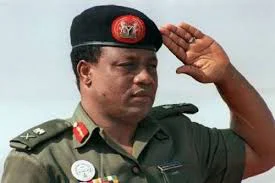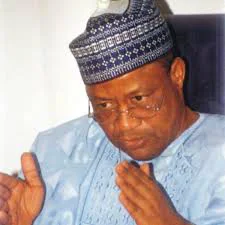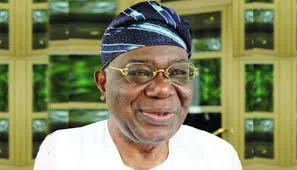General Sani Abacha, The Military Man to The Core. He Came, He Saw And He Concord
Contrary to the public perceptions that the annulment of June 12, 1993 presidential election provided the late General Sani Abacha the opportunity to seize power, emerging facts have thrown more light on the scheming, intrigues, power play, and betrayal that finally culminated in the November 17, 1993 coup which brought Abacha to power.
The scheming dated back to 1992 when the transition programme by the then dictator, General Ibrahim Babangida was extended at the October 15 and 16, 1992 meeting of the then Armed Forces Ruling Council, AFRC. It was at this meeting, that June 12, 1993 was fixed for the presidential election. That meeting would surely go down as the most turbulent and tempestuous meeting by the brass hats in the highest decision making organ of military government.
On the eve of the meeting on October 14. Abacha who was then minister of defence met with Generals Chris Gamba, John Inienger and Adetunji Olurin who were then General Officers Commanding GOCs 82 Division of the army with headquarters in Enugu, 2 Mechanised Division with headquarters in Ibadan and 3 Armoured Division based in Jos respectively.
General Abdulsalami Abubakar, the incumbent head of the junta was then GOC 1 Mechanised Division with headquarters in Kaduna who was also expected at the meeting, was absent.
Abubakar's absence notwithstanding, Abacha tried hard to co-opt the three GOCs into a plot to overthrow Babangida via a palace coup. His tactics were simple.
All the GOCs would have to do was to pointedly tell Babangida during the AFRC meeting scheduled for the following day that his time had Indeed evaporated and as a result, he should resign and hand over power as Nigerians no longer had confidence in his elongated and circuitous transition programme.
Although Abacha did not disclose who was to step in as commander-in-chief, the thoroughly bewildered GOCs actually smelt a rat.
Worried, the GOCs later came together in their hotel that night to review what the minister of defence wanted them to do. After a long deliberation in which all the officers aired their views, they all unanimously agreed that the task Abacha put before them was not only a difficult task but also an impossible one. They then decided to distance themselves from such a costly venture. Their main grouse being that Abacha was himself a liability of sorts to the army and consequently would hardly sell for such a position as commander-in-chief.
The AFRC meeting took place the following day. A confident Abacha strolled into the council chambers, and after exchanging banters with the other members present took his seat waiting for his plan to roll. Shortly after, Babangida emerged brimming with smiles as all the members including Abacha sprang to their feet to salute him before he finally took his seat.
During Babangida's dictatorship, when comments were invited on issues under discussion, the practice was to allow the junior members, that is the GOCs to make inputs first, then the service chiefs, before getting to the minister of defence and then the vice-president. It was this pyramidal arrangement that Abacha had intended to exploit for his selfish motive.
But on this particular day, either by premonition or mere intuition, Babangida reversed this trend and instead invited comments first from the vice-president and then the minister of defence before the discussion percolated down to the GOCs. His reversed arrangement simply knocked off the bottom of Abacha's grand design to unseat Babangida. Abacha was literally thrown off balance. He was confused and dazed. When it eventually got to his turn to make comments after the vice-president, he became tongue-tied, murmuring instead of talking and at the end he simply made no sense with what he said.
His second attempt to reintroduce the issue of stepping down after the GOCs in their naive wisdom had refused m fly the lute also ended disastrously and even earned him some tongue-lashing by Babangida who sarcastically told him that he (Babangida) was aware that Abacha was Indeed hungry for power.
Babangida did not stop there. He went ahead to propose two options for the council members to deliberate upon immediately. The result was to be declared to the nation as soon as decisions were reached. The first option was to invite Ameh Ebute the then senate president to take over the mantle of leadership and complete the transition progamme by organising the presidential election.
The other option was for all senior members of the AFRC. including Babangida himself, the vice president, the minister of defence, the service chiefs, Inspector general of police and principal staff officers at the DHQ to retire immediately and allow the GOCs to appoint a new commander-In-chief to complete the transition.
This second option became a bitter pill for Abacha to swallow as it would have not only put paid to his inordinate ambition but also abruptly terminate his career in the military. Abacha became momentarily frightened. A visibly shaken and ruined Abacha then resorted to begging Babangida to jettison the second option and allow for a short extension. After several hours of deliberations, the council mandated Babangida to order a short extension of the transition programme which brought about the June 12 date for the presidential election.
Between that October 1992 meeting and June 12, Abacha went back to the drawing board of intrigue to fashion out new strategies to realise his selfish ambition. He became a grandmaster of divide and rule - the system through which he played one military officer against another. He also pretended to be a democrat by making allusions to the fact that the military should subject itself to civilian authority, in a paper he delivered at the National War College few weeks later.
A master of deceit, while the June 12 election was approaching, Abacha was also perfecting his strategies to see that the election was not held. He and his group “clearly stated that they did not want the election.
(Abacha and Babangida on a foreign peace keeping mission)
The battle to stop the election later moved to the courtroom when the infamous Association for Better Nigeria, ABN filed a suit challenging the election. In spite of the Justice Bassey lkpeme‘s infamous midnight ruling that the election should not hold, the June 12 presidential election was held. People voted massively for Moshood Kashimawo Abiola. Abacha became a very sad man, but he was still playing along. He knew that his ambition would be foreclosed if power was handed over to Abiola. And so he set to work assiduously to see that this did not happen.
First, Abacha penetrated the ranks and file of the military by using officers who were so close to them as go-between.
At the end of the day, he succeeded in planting the seed of discord and hatred for Abiola, within the military.
Just as the election results were trickling in after June 12, Abacha and his cohorts worked day and night on Babangida to stop the announcement of the results midway. Abacha's scheming reached its crescendo on June 22, when he was virtually running rings around Babangida, trying to press home his demand that the whole June 12 election should be annulled.
In fact, IBB knew that his Minister of Defence was up to something sinister but it seemed there was no escape route for him. Abacha later policed Babangida throughout the night and effectively blocked all channels of communication with him. Abacha left for Lagos at 5 a.m. on June 23, the day of the annulment. According to Olurin, “Abacha must have hurriedly left for Lagos for a final showdown if Babangida failed to announce the annulment of the election. He had his clique in place around Babangida and waited for confirmation (or) to strike in Lagos." if the need arises.
Abacha was aware that Babangida would not be able to withstand the furore that would be generated by the annulment of the election. The annulment was finally announced in the afternoon of June 23, 1993. In the heat that followed, Abacha and his clique sold the idea of an interim government to Babangida because he (Abacha) knew that with Babangida out of the way, even an ordinary boy scout could topple Shonekan.
Babangida also played into Abacha’s hands when he retired all service chiefs and left Abacha behind “to consolidate the ING." That was the easiest way for Abacha to realise his long term ambition of becoming the commander-in-chief of the armed forces on November 17. 1993. Unfortunately, his coming to power exposed his numerous weaknesses and propensity to steal public funds.
Death finally played a cruel trick on the fox himself during the wee hours of Monday, June 8th 1998. There were shouts of celebration across Nigeria the day he died.
Like, share and comment.
Published by
ASA Reporters
asamarchants@gmail.com
+234809476644
www.asamarchant1.blogspot.com



















Comments
Post a Comment
ASA REPORTERS PUBLICATION.
Please Comment, Share and Follows The Blog So You Can Get More News from
https://asamarchant1.blogspot.com
Contact Us
1sultanabaji@gmail.com
asamarchants@gmail.com